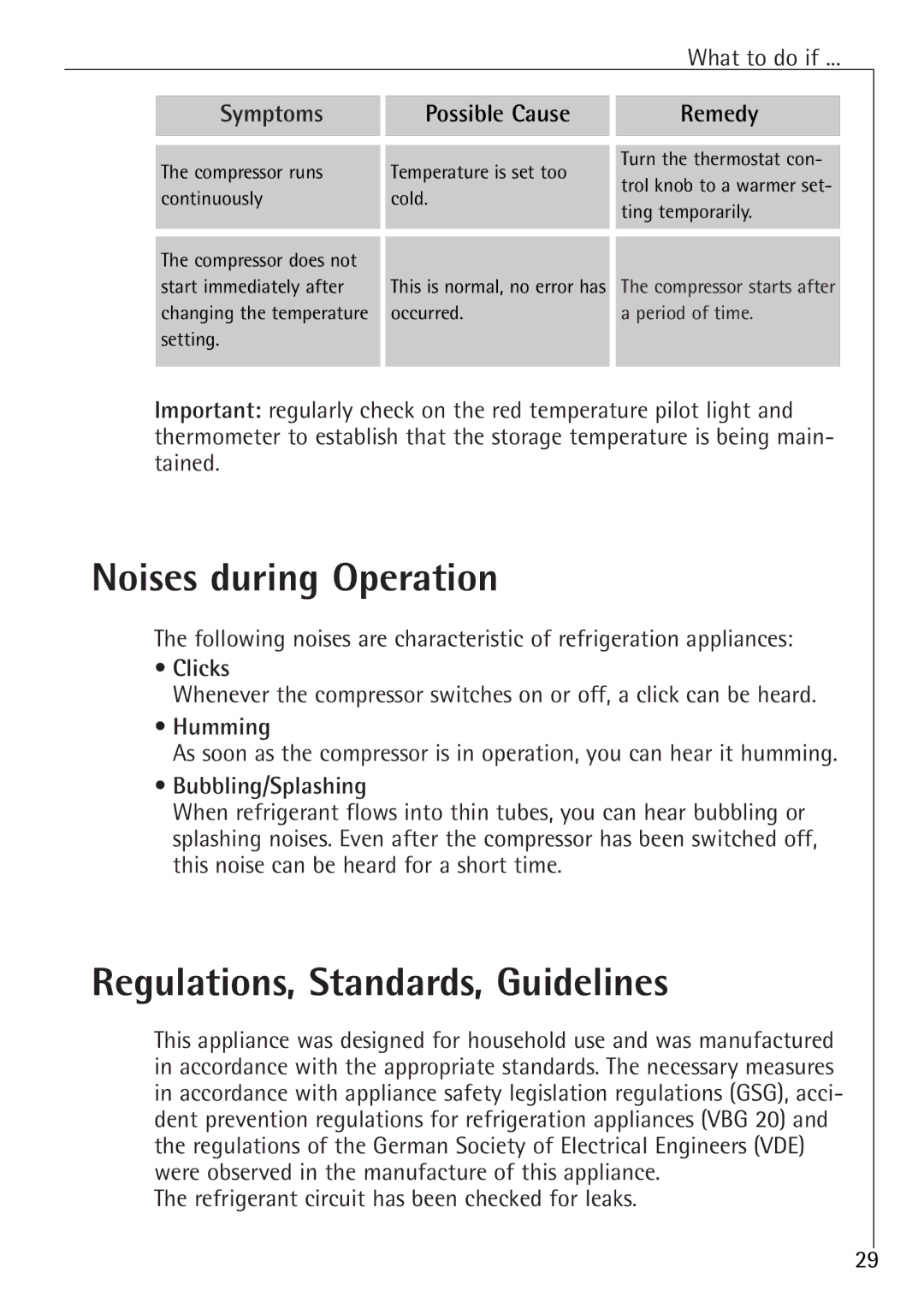
What to do if ...
Symptoms |
| Possible Cause |
| Remedy |
|
|
|
|
|
|
|
|
|
|
The compressor runs |
| Temperature is set too |
| Turn the thermostat con- |
|
| trol knob to a warmer set- | ||
continuously |
| cold. |
| |
|
| ting temporarily. | ||
|
|
|
| |
|
|
|
|
|
The compressor does not |
|
|
|
|
start immediately after |
| This is normal, no error has |
| The compressor starts after |
changing the temperature |
| occurred. |
| a period of time. |
setting. |
|
|
|
|
|
|
|
|
|
Important: regularly check on the red temperature pilot light and thermometer to establish that the storage temperature is being main- tained.
Noises during Operation
The following noises are characteristic of refrigeration appliances:
•Clicks
Whenever the compressor switches on or off, a click can be heard.
•Humming
As soon as the compressor is in operation, you can hear it humming.
•Bubbling/Splashing
When refrigerant flows into thin tubes, you can hear bubbling or splashing noises. Even after the compressor has been switched off, this noise can be heard for a short time.
Regulations, Standards, Guidelines
This appliance was designed for household use and was manufactured in accordance with the appropriate standards. The necessary measures in accordance with appliance safety legislation regulations (GSG), acci- dent prevention regulations for refrigeration appliances (VBG 20) and the regulations of the German Society of Electrical Engineers (VDE) were observed in the manufacture of this appliance.
The refrigerant circuit has been checked for leaks.
29
